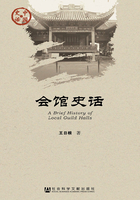Philogagging
To the memory of our philosophical grandfather
GROUCHO MARX,
who summed up our basic ideology when he said,
"These are my principles; if you don't like them, I have others."
An Introduction
DIMITRI: If Atlas holds up the world, what holds up Atlas?
TASSO: Atlas stands on the back of a turtle.
DIMITRI: But what does the turtle stand on?
TASSO: Another turtle.
DIMITRI: And what does that turtle stand on?
TASSO: My dear Dimitri, it's turtles all the way down!
This bit of ancient Greek dialogue perfectly illustrates the philosophical notion of infinite regress, a concept that comes up when we ask if there is a First Cause-of life, of the universe, of time and space, and most significantly, of a Creator. Something must have created the Creator, so the causal buck-or turtle-cannot stop with him. Or with the Creator behind him. Or the one behind him. It's Creators all the way down-or up, if that seems like the right direction for chasing down Creators.
If you find that infinite regress is getting you nowhere fast, you might consider the doctrine of creatio ex nihilo-creation out of nothing-or, as John Lennon put it in a slightly different context, "Before Elvis, there was nothing."
But let's lend an ear to old Tasso again. As well as being illuminating, his rejoinder-"It's turtles all the way down!"-definitely has the ring of a punch line. Ba-da-bing!
That's no surprise to us. The construction and payoff of jokes and the construction and payoff of philosophical concepts are made out of the same stuff. They tease the mind in similar ways. That's because philosophy and jokes proceed from the same impulse: to confound our sense of the way things are, to flip our worlds upside down, and to ferret out hidden, often uncomfortable, truths about life. What the philosopher calls an insight, the gagster calls a zinger.
For example, consider the following classic joke. On the surface, it just sounds deliciously goofy, but on closer inspection it speaks to the very heart of British empiricist philosophy-the question of what sort of information about the world we can depend on.
Morty comes home to find his wife and his best friend, Lou, naked together in bed. Just as Morty is about to open his mouth, Lou jumps out of the bed and says, "Before you say anything, old pal, what are you going to believe, me or your eyes?"
By challenging the primacy of sensory experience, Lou raises the question of what sort of data is certain and why. Is one way of gathering facts about the world-say, seeing-more dependable than others-say, a leap of faith that accepts Lou's description of reality?
Here's another example of a philogag, this one a riff on the Argument from Analogy, which says that if two outcomes are similar, they must have a similar cause:
A ninety-year-old man went to the doctor and said, "Doctor, my eighteen-year-old wife is expecting a baby."
The doctor said, "Let me tell you a story. A man went hunting, but instead of a gun, he picked up an umbrella by mistake. When a bear suddenly charged at the man, he picked up the umbrella, shot the bear, and killed it."
The man said, "Impossible. Someone else must have shot that bear."
The doctor said, "My point exactly!"
You couldn't ask for a better illustration of the Argument from Analogy, a philosophical ploy currently (and erroneously) being used in the argument for Intelligent Design (i.e., if there's an eyeball, there must be an Eyeball-Designer-in-the-Sky.)
We could go on and on-and in fact we will, from Agnosticism to Zen, from Hermeneutics to Eternity. We will show how philosophical concepts can be illuminated by jokes and how many jokes are loaded with fascinating philosophical content. Wait a second, are those two notions the same? Can we get back to you on that?
STUDENTS wandering into a philosophy class are usually hoping to gain some perspective on, say, the meaning of it all, but then some rumpled guy in mismatched tweeds ambles up to the podium and starts lecturing on the meaning of "meaning."
First things first, he says. Before we answer any question, big or small, we need to understand what the question itself signifies. Listening reluctantly, we soon discover that what this guy has to say is wicked interesting.
That's just the way philosophy-and philosophers-are. Questions beget questions, and those questions beget another whole generation of questions. It's questions all the way down.
We may start with basic ones like, "What is the meaning of it all?" and, "Does God exist?" and, "How can I be true to myself?" and, "Am I in the wrong classroom?" but very quickly we discover we need to ask other questions in order to answer our original questions. This process has given rise to an array of philosophical disciplines, each delving into particular Big Questions by asking and attempting to answer the questions that underlie them. Any questions?
So it follows that, "What is the meaning of it all?" is dealt with in the discipline known as Metaphysics, and "Does God exist?" in the one called, Philosophy of Religion. "How can I be true to myself?" falls to the school of Existentialism; "Am I in the wrong classroom?" to the new sector of philosophy called Meta-philosophy, which poses the question, "What is philosophy?" And on it goes, with each sphere of philosophy undertaking different kinds of questions and concepts.
We've arranged this book not chronologically, but by those questions we had in mind when we wandered into that first philosophy classroom-and the philosophical disciplines that tackle them. What's so neat is that a whole bunch of jokes just happen to occupy the identical conceptual territory as these disciplines. (Pure chance? Or is there an Intelligent Designer after all?) And there is a big reason why this is all so neat: When the two of us wandered out of that classroom, we were so baffled and bewildered, we were convinced we'd never get our minds around this heady stuff. That's when a graduate student sauntered up to us and told us the joke about Morty coming home to find his best friend, Lou, in bed with his wife.
"Now that's philosophy!" he said.
We call it philogagging.
THOMAS CATHCART
DANIEL KLEIN
August, 2006














